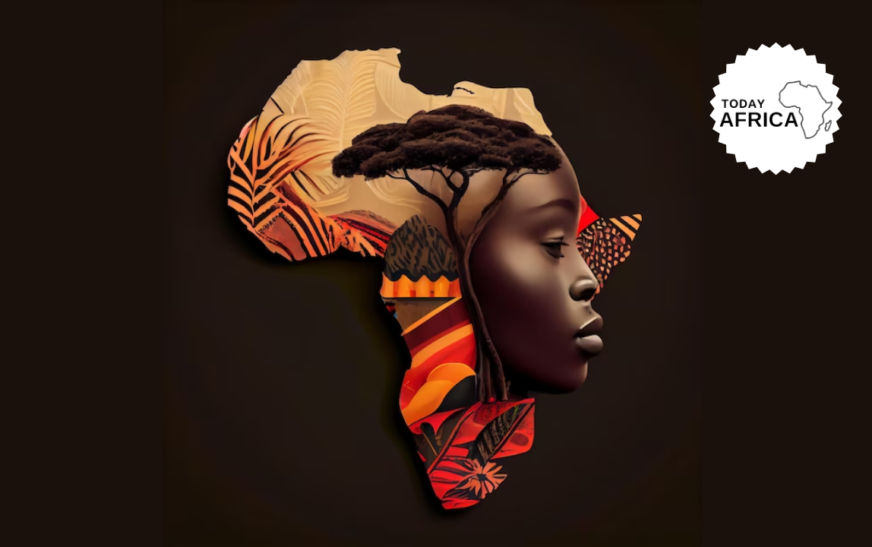Imagine you run a startup and suddenly your potential customer base isn’t just your city or country, but 50 million people in another region of the continent.
Sounds ambitious, right? But that’s exactly the kind of leap that the African Continental Free Trade Area (AfCFTA) offers, especially for African startups ready to scale not just locally, but continent-wide.
In this blog post, we’ll discuss AfCFTA’s hidden opportunities for African startups, what they are, how to spot them, how to act on them, and where the real value lies.
What AfCFTA really brings to the table
At its core, AfCFTA aims to create a single continental market for goods and services, allowing the free movement of people and capital. It’s not a distant dream; many African countries have started aligning their trade policies, customs, and digital systems.
That matters because, for decades, Africa’s biggest trade partner wasn’t Africa. Only about 16 – 20% of total African trade happens between African countries. Compare that to 60 – 70% in Europe or Asia, and you can see the gap, or rather, the opportunity.
With AfCFTA’s implementation, that’s changing fast. Reduced tariffs, harmonised regulations, and cross-border payment systems are breaking down barriers that have long made intra-African trade slow, expensive, and complicated.
What this means for startups
For startups, this is massive. It means you’re no longer constrained by your home country’s economic size. You can build for the continent from day one.
Imagine a Ghanaian SaaS company seamlessly serving clients in Kenya, or a South African agritech startup sourcing inputs from Nigeria and selling into Egypt, all within one trade framework.
That’s the promise of AfCFTA.
The real question is: who’s ready to take advantage?
Opportunities for African startups by AfCFTA
1. Digital & tech frontier
Startups in digital sectors, especially fintech, SaaS, and digital marketplaces, are best positioned to go regional under AfCFTA.
Why? Because they face fewer physical barriers. And when borders get easier to cross legally and financially, digital businesses move faster.
Take fintech, for instance. Historically, sending money from one African country to another was more expensive than sending it to Europe.
The Pan-African Payment and Settlement System (PAPSS), backed by Afreximbank, is solving that, enabling instant, low-cost transfers across AfCFTA member states.
A Nigerian fintech with users in Ghana or Kenya can now expand without wrestling with multiple currency conversions or redundant banking partners.
Similarly, digital ID systems and e-commerce regulations being standardised across countries means one compliance effort can now cover multiple markets.
According to the African Union, digital trade under AfCFTA is likely to add $180 billion to the continent’s economy by the end of 2025. That’s not a side benefit, that’s a digital gold rush in motion.
E-commerce, logistics, and platform opportunities
The e-commerce boom across Africa is another major beneficiary. Startups that bridge logistics, payments, and distribution gaps can now play on a continental stage.
Think of platforms like Kilimall (Kenya) or Jumia, which are already moving goods between several African markets. AfCFTA lowers costs, speeds up deliveries, and simplifies import/export paperwork.
But the real hidden opportunity lies in logistics infrastructure. Every regional trade network needs warehouses, transport tech, customs-clearing tools, and last-mile delivery.
Startups building these enablers, not just consumer apps, stand to become the backbone of AfCFTA-era commerce.
Read Also: The Gig Economy in Africa: Opportunity or Exploitation?
2. Manufacturing, agribusiness & value chains
Africa’s story has long been one of exporting raw materials and importing finished goods. AfCFTA aims to change that by encouraging value addition within Africa.
When tariffs drop on intermediate goods, components, packaging, and processed materials, local producers gain a huge incentive to collaborate across borders.
For startups, this means new business models:
- A cocoa-processing company in Ghana can export semi-finished chocolate to Nigeria tariff-free.
- A fashion manufacturer in Côte d’Ivoire can source textiles from Ethiopia and sell across ECOWAS and EAC zones under one trade framework.
- Agritech startups can connect farmers in Uganda with food processors in Rwanda or supermarkets in Zambia, without the old customs nightmares.
A UNECA study shows that AfCFTA could boost intra-African trade in manufactured goods by over 50% by 2030. For startups focused on supply chain technology, packaging, storage, and export logistics, that’s a once-in-a-generation opportunity.
Empowering SMEs and youth-led enterprises
Small and medium enterprises (SMEs) make up roughly 80% of Africa’s employment and half of its GDP. Most of them operate informally or locally.
AfCFTA, by formalising cross-border trade, opens the door for these small players, especially youth-led startups, to join regional value chains.
This is where innovation meets inclusion. A youth-owned shea butter brand in Mali can now export to Morocco without prohibitive tariffs.
A small Ugandan coffee brand can scale into West Africa through digital marketplaces. And startups that help SMEs navigate these processes, digital customs, financing, and certification will become essential partners in Africa’s new economy.

3. Investment, partnerships & capital flow
Investors like one thing above all: scale. And AfCFTA offers it.
A startup that demonstrates it can operate across borders is instantly more attractive, both to African venture funds and to global investors looking for regional plays.
Already, pan-African VC firms like Partech, TLcom, and Norrsken22 are structuring funds with AfCFTA integration in mind. They’re betting on startups that can move fast between member countries, leveraging unified trade rules and digital payment frameworks.
This cross-border appeal doesn’t just attract money; it attracts credibility.
A Kenyan healthtech startup that’s compliant in five AfCFTA countries automatically signals maturity and scalability. And in a funding environment where differentiation matters, that signal can be priceless.
Strategic alliances and ecosystem growth
Beyond investment, AfCFTA encourages strategic partnerships, both startup-to-startup and startup-to-corporate. A Ghanaian agritech company could partner with an Ethiopian logistics startup to serve new regions.
A South African renewable energy startup might find local installers in 10 countries thanks to standardised energy regulations under AfCFTA.
These alliances reduce entry barriers and create synergies that used to be bureaucratically impossible.
The hidden opportunity here is ecosystem building, startups positioning themselves as continental connectors, not just national champions.
Read Also: Exit Strategies for African Startups (What Investors Should Know)
AfCFTA’s hidden opportunities for African startups
1. Digital infrastructure & data economy
While trade in goods gets the headlines, digital infrastructure might be AfCFTA’s quietest revolution.
The agreement’s Protocol on Digital Trade, currently under negotiation, will set unified rules for e-commerce, cybersecurity, data privacy, and digital identity across Africa.
That’s huge. Because right now, African startups face fragmented digital laws. Each country has its own data regulations, taxes, and compliance codes. Harmonisation will simplify everything from cloud hosting to cross-border data transfers.
Startups that focus on enabling this, digital ID, cybersecurity, data verification, digital contracts, and cross-border compliance tech are building the tools every other business will need.
Imagine being the “Stripe” or “DocuSign” for Africa’s integrated digital market. That’s where the quiet money will be made.
2. Special economic zones & trade hubs
AfCFTA is also accelerating the creation of special economic zones (SEZs) and industrial parks across Africa. Countries like Rwanda, Kenya, Ghana, and Ethiopia are developing export processing zones that leverage AfCFTA to attract investment and startups.
These hubs offer tax incentives, streamlined customs processes, and access to trade corridors.
For a startup in logistics, agribusiness, or light manufacturing, setting up in one of these zones can cut costs dramatically and give instant regional reach.
For instance, Rwanda’s Kigali Innovation City is positioning itself as a hub for digital trade under AfCFTA. Ghana’s Tema Free Zone is expanding its port capacity to handle regional exports.
These zones aren’t just for big companies; they’re becoming ideal testbeds for scaling startups.
Read Also: Ariaria International Market Aba: Africa’s Hub of Creativity and Trade
How startups can position themselves to win
1. Start with regional thinking
Design your business model with scalability in mind. Even if you’re small, think beyond your borders from day one. Where else could your product fit? Which countries share your customers’ needs, languages, or pain points? Map that early.
2. Build the right partnerships
No startup scales alone and definitely not across 50 countries. Form relationships with trade agencies, export councils, logistics firms, and local partners. Leverage incubators or accelerators focused on AfCFTA readiness. Pan-African collaboration is your biggest currency.
3. Embrace digital compliance and payments
Get familiar with frameworks like PAPSS and regional e-commerce standards. Build secure payment and verification systems into your product. If your business can collect money seamlessly from five countries, you’ve already solved half the problem.
4. Invest in localisation
Language, culture, and consumer habits still matter. What sells in Ghana may not resonate in Egypt. Tailor your marketing, onboarding, and customer support to each country’s nuances. AfCFTA removes tariffs, not taste.
5. Measure readiness with real data
Don’t guess. Use metrics:
- How many regional partnerships do you have?
- Can your product operate legally and technically in at least three countries?
- What percentage of your revenue comes from outside your home base?
Those numbers will tell you whether you’re AfCFTA-ready and help attract investors who value proof, not promises.
Read Also: African Second-hand Economy: The Billion-dollar Industry
Challenges to keep in mind
AfCFTA’s potential is huge, but it’s not automatic. Startups should go in with both eyes open.
Implementation is uneven
Some countries are moving faster than others. Tariff schedules, customs digitisation, and border reforms aren’t uniform yet. Your experience expanding from Kenya to Tanzania may be smoother than going from Nigeria to Algeria.
The best move? Do your homework. Engage national AfCFTA coordination offices, trade associations, and local business councils before expanding. Knowledge is leverage.
Infrastructure gaps remain
Yes, digital tools can bridge some gaps, but poor road networks, ports, and logistics systems still slow trade. Startups that can solve or bypass those inefficiencies, through technology, partnerships, or decentralised models, will thrive where others stall.
Regulatory and cultural complexity
Each African market has its own quirks, licensing, taxes, banking regulations, languages, and even legal definitions of a “startup.” Overlooking these details can burn time and money fast. Hiring or partnering locally is the simplest workaround.
Competition will intensify
A larger market attracts more players. As AfCFTA lowers barriers, startups from 50+ countries can compete in your home turf. You’ll need sharper differentiation, better pricing, and a stronger brand story to win hearts (and wallets).
But again, competition also validates the opportunity. The trick is to build faster, partner smarter, and play the long game.
Read Also: African Startups Tackling Energy and Waste: A Look into the Cleantech
What success could look like
Fintech expansion made possible
Consider a payment startup in Lagos that builds on PAPSS to offer cross-border merchant payments. By integrating AfCFTA’s simplified rules of origin and digital settlement systems, it can expand to Ghana and Kenya with minimal friction. Within months, it’s serving merchants in three countries and attracting pan-African venture capital.
Agritech scaling through value chains
An agritech startup in Rwanda connects small farmers to markets in Uganda and DRC. Under AfCFTA, its produce certification is recognised regionally, and tariffs on agricultural goods are reduced. The startup scales faster, gains access to regional storage and transport infrastructure, and attracts buyers from East Africa’s largest supermarkets.

Manufacturing clusters forming
In West Africa, local garment makers collaborate across Ghana, Togo, and Côte d’Ivoire to produce regionally branded textiles. Tariff cuts on imported inputs make costs lower, while regional branding boosts exports to other African markets. The result: new jobs, more exports, stronger supply chains.
These are not hypothetical scenarios; they’re the early stories already unfolding quietly across the continent.
Conclusion
The AfCFTA isn’t just another trade deal. It’s a long-term bet on Africa’s ability to trade with itself and to build prosperity from within. For startups, it’s the biggest open door in decades.
The hidden opportunities in digital infrastructure, logistics, manufacturing, and investment flows aren’t really “hidden” anymore. They’re emerging wherever founders dare to look beyond their borders and act early.
So if you’re building in Africa today, here’s the challenge: don’t wait for the perfect rollout.
Start mapping your regional strategy now. Build partnerships. Test cross-border demand. Align your operations to AfCFTA’s direction of travel.
The startups that learn to operate continent-wide before everyone else does, won’t just benefit from AfCFTA. They’ll define what African business looks like for the next generation.
FAQs
What exactly is AfCFTA’s promise for African startups?
It’s the opportunity to access a larger, harmonised African market (1.3 billion people) under unified trade rules, with lower tariffs, simplified cross-border trade, and more region-wide opportunities in goods, services, and digital trade.
Do startups outside of tech get benefits under AfCFTA?
Yes, while tech/digital have clear advantages, startups in manufacturing, agribusiness, logistics, supply chain, and value-added goods can all benefit from regional value chain development, trade facilitation, and regional export markets.
What’s the biggest challenge for startups wanting to scale under AfCFTA?
Implementation is uneven. Infrastructure, regulatory frameworks, local language/culture, compliance across different countries all add complexity. Startups must be ready to navigate that, and not assume “one product fits all countries”.
How soon can my startup realistically benefit from AfCFTA?
Some benefits can be realised quickly (e.g., cross-border digital services if you already have a scalable product). Others (physical exports, manufacturing scale, logistics networks) may take 18–36 months or more as you build partnerships, operations and compliance.
What should a startup focus on now to prepare for AfCFTA?
Get your core model solid in your home country. Then: research 1-2 neighbouring markets, build partnerships/regulatory knowledge there, ensure your product/service can scale regionally, and design your finances/operations with regional growth in mind.
Leave a comment and follow us on social media for more tips:
- Facebook: Today Africa
- Instagram: Today Africa
- Twitter: Today Africa
- LinkedIn: Today Africa
- YouTube: Today Africa Studio
















